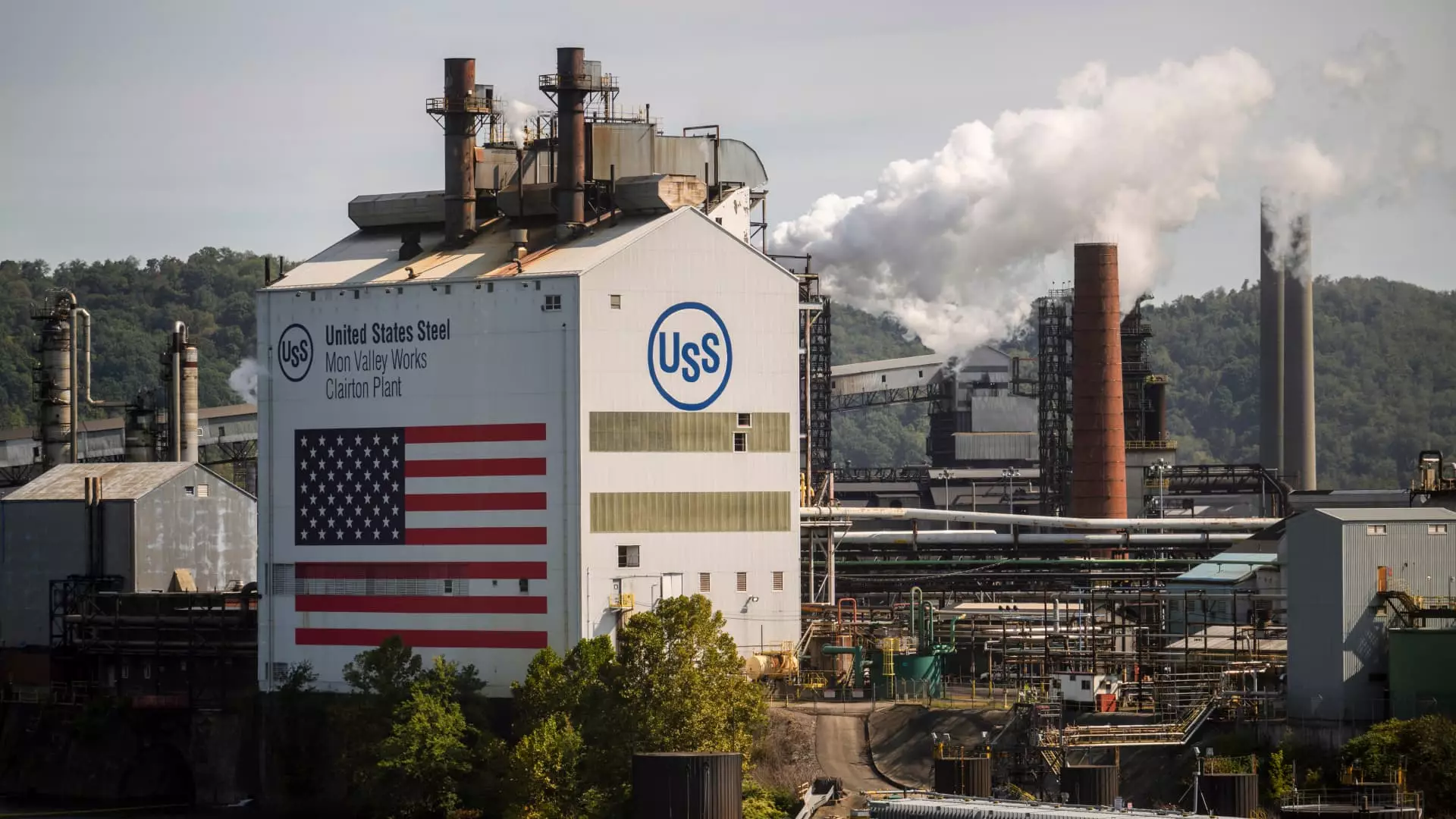In a surprising turn of events, the Trump administration is attempting to revive a merger between U.S. Steel and Nippon Steel, a deal squashed during the Biden administration under the auspices of national security concerns. The motion to extend deadlines in the ongoing lawsuit against the Committee on Foreign Investment in the United States (CFIUS) suggests growing momentum for this controversial decision. The irony of reversing measures set by the previous administration is palpable, raising questions about accountability and governance in U.S. foreign policy.
Trump’s flirtation with the merger raises eyebrows not just because of the polarized political climate, but also due to the underlying economic implications of such a deal. The current administration appears willing to reconsider the potential benefits of foreign investments, despite the lingering unease regarding national security risks. For many critics, this is a perplexing diversion from the administration’s original hardline stance on foreign ownership in key industries.
Winners and Losers: A Trade-Off Economy
The implications of this merger extend far beyond the boardrooms of U.S. Steel and Nippon Steel. If approved, it could alter the competitive landscape of the steel industry in America, impacting workers, consumers, and overall market dynamics. Proponents argue that this merger could bring fresh capital and technological advancements, providing a critical boost for a beleaguered industry. On the other hand, skeptics wonder if the deal is primarily a strategic maneuver aimed at individual political gains rather than greater economic welfare.
Additionally, the lawsuit filed by these companies raises essential concerns about transparency and fairness in regulatory reviews. The claim that Biden’s administration skewed CFIUS’ evaluative process to curry favor with unions speaks volumes about the intersection of politics and business. Should the merger be approved, will we witness a future where corporate interests increasingly eclipse legitimate security considerations?
Power Struggles: Between Politics and Industry
The political jockeying surrounding this merger further underlines a broader issue in American governance—the balancing act between national security and economic prosperity. The notion that decisions made by a sitting president can drastically affect the course of American industry, often based on electoral aspirations, cannot be overlooked. The ongoing litigations around this merger reveal a disheartening trend where industries become pawns in larger political games.
As corporate leaders vie for influence and regulatory favor, citizens are left to navigate an increasingly convoluted landscape where their jobs hang in the balance. Will this potential merger yield more jobs and better economic outcomes for steelworkers, or will it simply solidify a cyclical pattern of prioritizing short-term political gains over long-term industrial stability?
Negotiation or Manipulation? A Closer Look
In light of Trump’s willingness to entertain a minority stake for Nippon Steel, the question remains: is this a sound business decision or merely a political maneuver? The pressures to negotiate a favorable deal become even more pronounced when considering the impending elections and the crucial swing states like Pennsylvania. As Nippon Steel seeks to recalibrate its approach, we must wonder if this path forward is driven by genuine collaboration or if it reflects a troubling trend of transactional politics.
It’s crucial that policymakers prioritize transparency and ethical considerations over opportunistic tactics. In a climate fraught with division and distrust, the integrity of our economic policies and the well-being of American workers should prevail over shortsighted demographics and electoral calculus. As we navigate this precarious landscape, the stakes are too high to allow the needs of a few decision-makers to dictate the fate of an entire industry. The possible revival of this merger is a painful case study on why corporate dealings should never overshadow national integrity.

